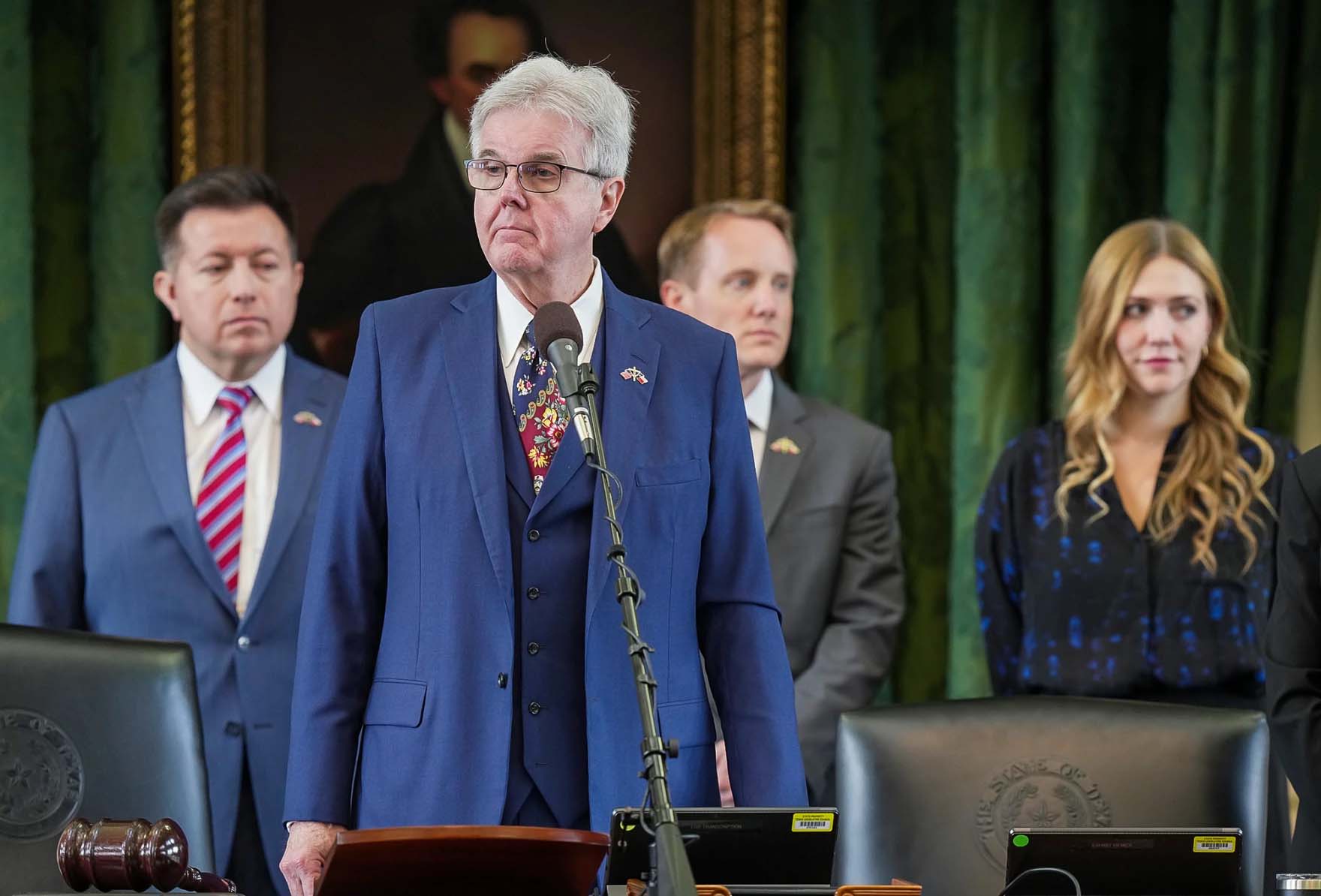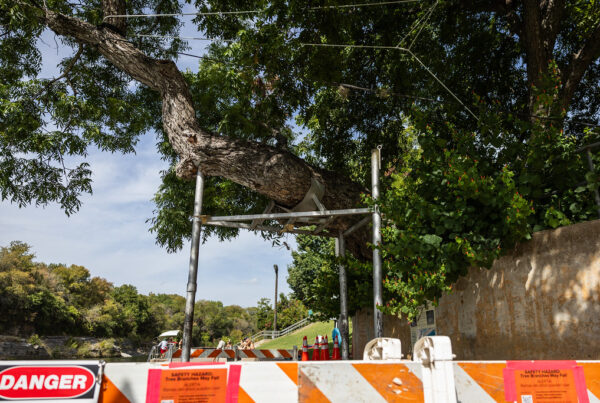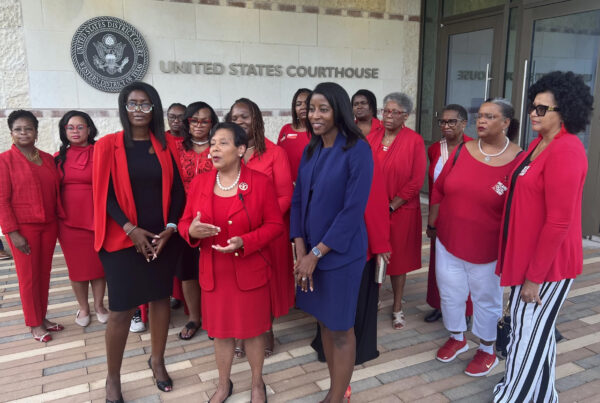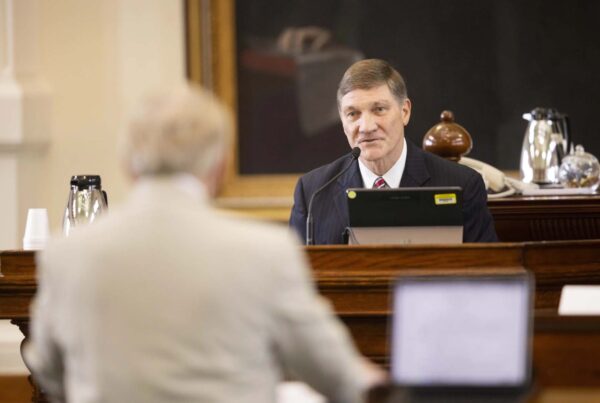From The Texas Newsroom:
Ken Paxton’s impeachment trial is likely in its final days, leaving House impeachment managers and the suspended Texas attorney general’s defense team just hours to present and cross-examine witnesses.
Lt. Gov. Dan Patrick, who serves as judge in Paxton’s trial before the Texas Senate, said yesterday he intends to hold proceedings into the evening over the next few days, with no pauses in the action until verdicts were decided on the multiple charges against Paxton.
If convicted, Paxton would be removed from office.
Paxton has maintained his innocence throughout and pleaded not guilty to all 20 articles of impeachment.
» LISTEN: Live audio stream of Ken Paxton’s impeachment trial
‘I didn’t think that it was unusual’
Criminal attorney Brandon Cammack was the first witness called Tuesday by House impeachment managers. Cammack’s name has already come up quite a bit during the trial — in late summer of 2020, he was the outside attorney Ken Paxton hired to investigate federal and local officials related to the FBI searches of Austin real estate developer Nate Paul’s home and businesses. Cammack had no prior experience as a prosecutor before being hired.
Paxton was suspended from his office in May when a Texas House investigation found Paxton allegedly committed bribery and abused the power of his office, among many other allegations, in connection with Nate Paul. Paxton was removed after 121 Texas House members, including 60 Republicans, voted for his removal.
Cammack testified that Paxton said he wanted to hire a special prosecutor because his regular staff was not willing to pursue the investigation.
“He said that he was looking to hire a special prosecutor to investigate a criminal case where potentially there were potential violations of the Texas penal code,” Cammack said.
He also described meeting with Nate Paul and Paul’s attorney, Michael Wynne, at which time he said Paul told him no amount of evidence could convince Mark Penley, the deputy attorney general for criminal justice, to pursue action against the individuals who orchestrated the searches of Paul’s properties.
“I thought, ‘Why is the attorney general involved in this? Why is he wanting me to know about this?’ This is not a state matter, from what I could tell,” Penley said on Monday.
Cammack agreed to take the job for Paxton, not realizing the extent of the opposition to his hiring. He said he considered Paul’s allegations that the search warrants against his properties had been illegally altered to be worth investigating.
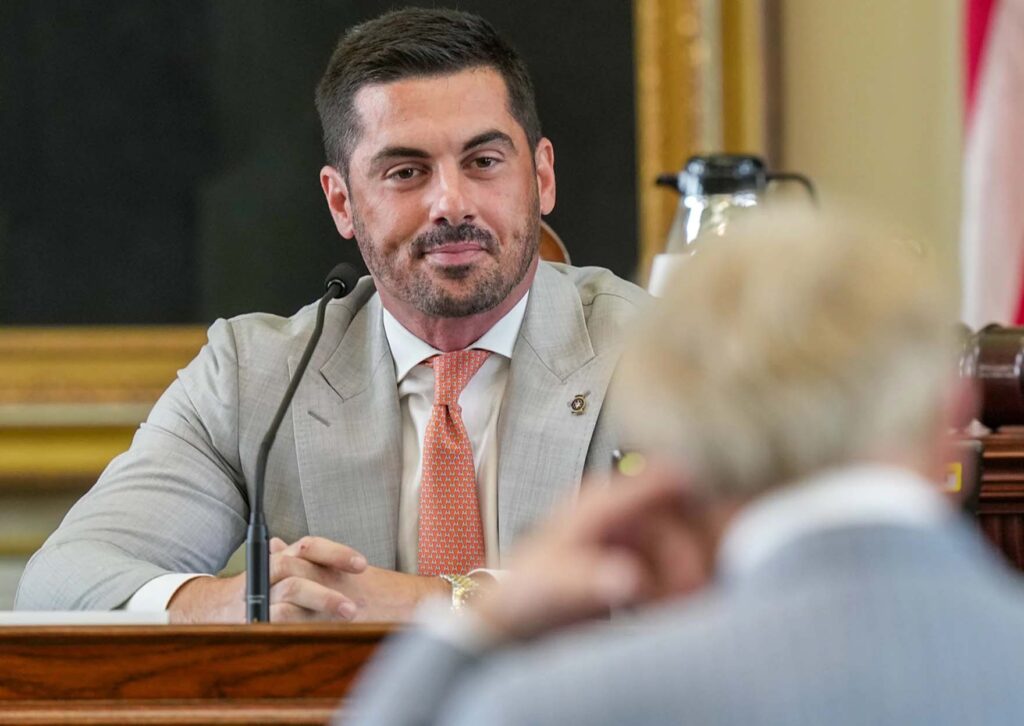
Brandon Cammack testifies during the sixth day of the impeachment trial of Texas Attorney General Ken Paxton.
Ricardo B. Brazziell / pool via American-Statesman
“I viewed (Paul) as a complainant in the case,” Cammack said, “and just in the same way that if a client hires me for a case and they bring in a banker’s box full of documents and information, I’m going to go through it. And so I didn’t think that it was unusual that I would be getting information from the complainant and his attorney. And as I got that information, you know, I thought this was the same information that Mr. Penley had.”
Shortly after being hired, Cammack said he received two referrals from the Travis County District Attorney’s Office. One dealt with the federal search of Paul’s properties, but the second dealt with an entirely separate matter, where Paul alleged mortgage fraud and wrongful foreclosure of his properties in a bankruptcy hearing.
Cammack said he approached Paxton, thinking this second referral was outside the scope of his contract, but was told to follow it up as well.
“Towards the end of September,” Cammack said, “I was told by Michael Wynne that Mr. Penley had reached out to him, kind of out of the clear blue for documents. And then I asked Mr. Paxton about that when I spoke with him, and he said, ‘Well, I told him to stand down. He’s not working on this case. You are.’”
In his testimony, Cammack described how his contract persisted for three and a half weeks without his being given any official credentials, something he said he needed in order to issue grand jury subpoenas.
Communicating through unofficial channels
Cammack said that, during this time, he communicated regularly with Paxton via text, the messaging app Signal, and through cell phones rather than official government lines, as well as Proton email accounts rather than official government email accounts.
Cammack said he only learned of Paxton’s official government email account when he received a cease-and-desist message from First Assistant Attorney General Jeff Mateer.
In his own testimony last week, Mateer testified that Penley had objected to Paxton’s recommendation of hiring Cammack as an outside counsel to investigate whether Paul was being treated unfairly by federal officials.
“He was upset at Mr. Penley because Mr. Penley had expressed he was not in favor of hiring Mr. Cammack,” Mateer testified, adding he “thought it was very suspicious that someone who is the target of a federal investigation was reaching out to the attorney general of Texas for legal help.”
He added that the usually congenial Paxton became uncharacteristically belligerent on that occasion.
A termination at Starbucks
Cammack testified he’d received multiple communications through Wynne containing information about individuals to whom he should issue grand jury subpoenas. These included opposing counsel in a number of civil suits against Paul and a federal bankruptcy judge trying a case against Paul. Cammack said he used one of the memos he received from Wynne as the basis of a prosecution memo he forwarded to Paxton.
Shortly after Cammack began issuing subpoenas, he received a pair of cease-and-desist orders – first from Penley, then from Mateer. Then, Cammack said, U.S. Marshals showed up at his office in Houston. Cammack said he blew up Paxton’s phone, calling or texting at least five times until the attorney general responded to him.
“He told me, ‘Don’t talk to them without a lawyer. I don’t know what it’s about either,’” Paxton said.
Following the cease-and-desist letter from Mateer, Cammack said he was summoned to Austin to meet with Wynne at Paul’s house. He said Paxton was there, but that the attorney general spent most of the time on the phone and that Wynne and Paul did most of the talking.
“When Mr. Paxton came in as I was going to leave,” Cammack said, “he had mentioned that Mr. Penley didn’t have any authority to tell me to stop working. He told him to stand down and just to continue to work on this report.” Cammack said he did not do any further work, having received two cease-and-desist letters and having not yet been paid for his work to date.
Cammack said he was summoned back to Austin in the first week of October 2020 to meet with Paxton and then-First Assistant Attorney General Brent Webster. He said Paxton and Webster took him to a nearby Starbucks, at which time Webster informed him Cammack’s contract was no longer valid and that he was terminated.
“I said, ‘What about my $14,000 invoice?’” Cammack said, “And (Webster’s) like, ‘Well, you’re going to have to eat that invoice. I’ve had to eat $40,000 invoices.’” Cammack said Paxton and Webster then prepared to leave the Starbucks and nearly drove off, leaving Cammack alone, before Cammack stopped them and asked them for a ride back to his car.


